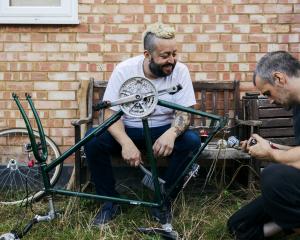

So, what does it mean to have equality, is that the same as equity and do they lead to similar outcomes? Does equality lead to sustainability?
Equality and equity are, in fact, two different terms.
Equity is a core component of sustainability. It is concerned with the fair distribution of resources (and environmental burdens) both intra-generationally — meaning across current parts of society — and inter-generationally, thinking about future generations, our mokopuna.
Intragenerational equity is vital for sustainability because it addresses social disparities that can lead to overexploitation of resources and environmental degradation. Ensuring that all members of the current generation can meet their needs is fundamental to achieving a sustainable future. Intergenerational equity advocates for the prudent use of natural resources, conservation of biodiversity, and mitigation of environmental impacts to ensure that future generations inherit a healthy and vibrant planet.
On the other hand, equality means that resources are distributed equally — everyone gets the same, which is not necessarily a fair distribution and does not always result in the same outcomes for everyone.
A sustainable and resilient society aims to distribute resources to people in a just and equitable way, to achieve equal outcomes. A sustainable business would also aim to enable everyone in the business the opportunity to access, use and receive resources, now and into the future. For this to occur equitably it may mean that some groups within the business have different enablers in order to address institutional or systemic barriers. As such, treating everyone the same may not address equity in the workplace or in wider society.
Integrating equity into sustainability activities is essential for creating inclusive solutions that address the root causes of environmental degradation and social injustice. By incorporating equity principles into sustainability practices, it is possible to achieve a balance that not only preserves planetary ecosystems but also enhances the well-being and dignity of all people.
New Zealand has in the past sought to be an equitable society. However, despite those efforts, there are areas, for example the treatment of Māori, and in terms of gender and sexuality, where
equity has not occurred and we have seen inequitable outcomes, including in terms of health and education, relative to those who have access to greater resources. Research shows that to bring about equity in these areas, recognising, supporting and enabling access to resources for those structurally disadvantaged helps and then enables greater achievement for all across society. Research also shows that a more equitable society is a happier society.
Nowadays though, there is a lot of criticism of happier and equitable societies — any shifts towards greater equity are denegrated as "woke". Being woke, meaning being awake to or aware of injustice and discrimination, is often used as an insult, which is surprising. Why would we insult someone for wanting to create better outcomes for all people? I have no doubt that this article will be considered "woke" and I’m pretty comfortable with that.
Sustainability, whether in business or across societies, is inextricably connected with having equity. The goal of a sustainable society, of which business is a part, needs to include a focus on equal outcomes and an equity-based approach to facilitate that. As such, inclusion, diversity and equitable outcomes are cornerstones of a just transition, they’ll help build the resilience we need as we feel both the local and global impacts of climate change.
The pressures of moving populations, driven by a heating planet, will likely make this more challenging still. So, best we get cracking now.
Prof Sara Walton teaches and researches in the area of sustainability, climate change and business at Te Kura Pakihi Otago Business School Te Whare Wānanga Ōtakou.












